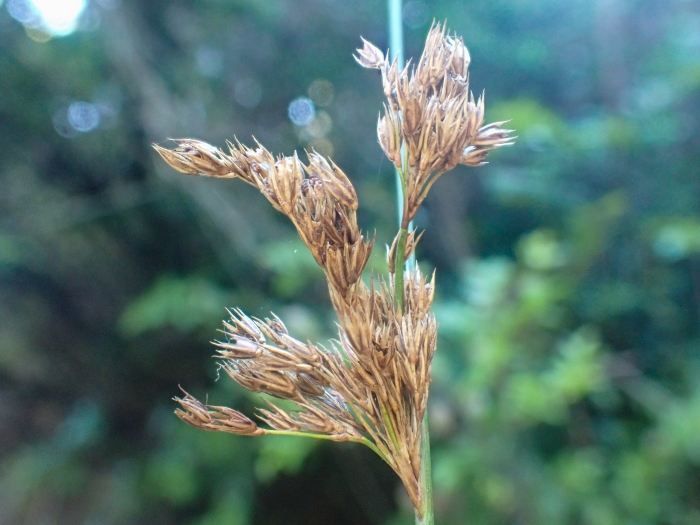Western Rush
(Juncus hesperius)
Western Rush (Juncus hesperius)
/
/

© Chloe and Trevor Van Loon
CC BY 4.0
Image By:
© Chloe and Trevor Van Loon
Recorded By:
Copyright:
CC BY 4.0
Copyright Notice:
Photo by: © Chloe and Trevor Van Loon | License Type: CC BY 4.0 | License URL: http://creativecommons.org/licenses/by/4.0/ | Uploader: chloe_and_trevor | Publisher: iNaturalist |









Estimated Native Range
Summary
Juncus hesperius, commonly known as Western Rush, is a perennial herb native to wetlands, including marshes, wet meadows, and streambanks, primarily in the Western United States. It typically grows to a height of 1-2.5 feet (0.3-0.8 meters) and a spread of 1-1.5 feet (0.3-0.5 meters). This rush features upright, cylindrical, green stems and produces small, brown, clustered flowers that bloom in the summer. The flowers are not particularly showy, but they do add a subtle texture to the plant’s overall appearance.
Western Rush is valued for its ability to thrive in wet conditions and is often used in rain gardens, bioswales, and as a naturalizing element in water features. It is also suitable for erosion control due to its dense root system. In cultivation, it prefers full sun to part shade and can tolerate a range of soil types, including clay and loam, as long as they are consistently moist or wet. It is a low-maintenance plant that requires minimal care once established.CC BY-SA 4.0
Western Rush is valued for its ability to thrive in wet conditions and is often used in rain gardens, bioswales, and as a naturalizing element in water features. It is also suitable for erosion control due to its dense root system. In cultivation, it prefers full sun to part shade and can tolerate a range of soil types, including clay and loam, as long as they are consistently moist or wet. It is a low-maintenance plant that requires minimal care once established.CC BY-SA 4.0
Plant Description
- Plant Type: Grass
- Height: 1-2.5 feet
- Width: 1-1.5 feet
- Growth Rate: Moderate
- Flower Color: N/A
- Flowering Season: Summer
- Leaf Retention: Evergreen
Growth Requirements
- Sun: Full Sun, Part Shade
- Water: High
- Drainage: Slow, Standing
Common Uses
Bird Garden, Deer Resistant, Erosion Control, Low Maintenance, Water Garden
Natural Habitat
Wetlands, including marshes, wet meadows, and streambanks
Other Names
Common Names: Western Rush, Coast Rush, Hesperus Rush
Scientific Names: , Juncus hesperius, Juncus effusus subsp. hesperius, Juncus effusus var. bruneus,
GBIF Accepted Name: